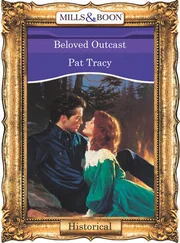"Y'all got boys," he told them. "Young boys, old boys, picky boys, stroppin boys. Now at Sweet Home, my niggers is men every one of em. Bought em thataway, raised em thataway. Men every one."
"Beg to differ, Garner. Ain't no nigger men."
"Not if you scared, they ain't." Garner's smile was wide. "But if you a man yourself, you'll want your niggers to be men too."
"I wouldn't have no nigger men round my wife."
It was the reaction Garner loved and waited for. "Neither would I," he said. "Neither would I," and there was always a pause before the neighbor, or stranger, or peddler, or brother-in-law or whoever it was got the meaning. Then a fierce argument, sometimes a fight, and Garner came home bruised and pleased, having demonstrated one more time what a real Kentuckian was: one tough enough and smart enough to make and call his own niggers men.
And so they were: Paul D Garner, Paul F Garner, Paul A Garner, Halle Suggs and Sixo, the wild man. All in their twenties, minus women, fucking cows, dreaming of rape, thrashing on pallets, rubbing their thighs and waiting for the new girl-the one who took Baby Suggs' place after Halle bought her with five years of Sundays.
Maybe that was why she chose him. A twenty-year-old man so in love with his mother he gave up five years of Sabbaths just to see her sit down for a change was a serious recommendation.
She waited a year. And the Sweet Home men abused cows while they waited with her. She chose Halle and for their first bedding she sewed herself a dress on the sly.
"Won't you stay on awhile? Can't nobody catch up on eighteen years in a day."
Out of the dimness of the room in which they sat, a white staircase climbed toward the blue-and-white wallpaper of the second floor.
Paul D could see just the beginning of the paper; discreet flecks of yellow sprinkled among a blizzard of snowdrops all backed by blue.
The luminous white of the railing and steps kept him glancing toward it. Every sense he had told him the air above the stairwell was charmed and very thin. But the girl who walked down out of that air was round and brown with the face of an alert doll.
Paul D looked at the girl and then at Sethe who smiled saying, "Here she is my Denver. This is Paul D, honey, from Sweet Home."
"Good morning, Mr. D."
"Garner, baby. Paul D Garner."
"Yes sir."
"Glad to get a look at you. Last time I saw your mama, you were pushing out the front of her dress."
"Still is," Sethe smiled, "provided she can get in it."
Denver stood on the bottom step and was suddenly hot and shy.
It had been a long time since anybody (good-willed whitewoman, preacher, speaker or newspaperman) sat at their table, their sympathetic voices called liar by the revulsion in their eyes. For twelve years, long before Grandma Baby died, there had been no visitors of any sort and certainly no friends. No coloredpeople. Certainly no hazelnut man with too long hair and no notebook, no charcoal, no oranges, no questions. Someone her mother wanted to talk to and would even consider talking to while barefoot. Looking, in fact acting, like a girl instead of the quiet, queenly woman Denver had known all her life. The one who never looked away, who when a man got stomped to death by a mare right in front of Sawyer's restaurant did not look away; and when a sow began eating her own litter did not look away then either. And when the baby's spirit picked up Here Boy and slammed him into the wall hard enough to break two of his legs and dislocate his eye, so hard he went into convulsions and chewed up his tongue, still her mother had not looked away. She had taken a hammer, knocked the dog unconscious, wiped away the blood and saliva, pushed his eye back in his head and set his leg bones. He recovered, mute and off-balance, more because of his untrustworthy eye than his bent legs, and winter, summer, drizzle or dry, nothing could persuade him to enter the house again.
Now here was this woman with the presence of mind to repair a dog gone savage with pain rocking her crossed ankles and looking away from her own daughter's body. As though the size of it was more than vision could bear. And neither she nor he had on shoes.
Hot, shy, now Denver was lonely. All that leaving: first her brothers, then her grandmother-serious losses since there were no children willing to circle her in a game or hang by their knees from her porch railing. None of that had mattered as long as her mother did not look away as she was doing now, making Denver long, downright long, for a sign of spite from the baby ghost.
"She's a fine-looking young lady," said Paul D. "Fine-looking.
Got her daddy's sweet face."
"You know my father?"
"Knew him. Knew him well."
"Did he, Ma'am?" Denver fought an urge to realign her affection.
"Of course he knew your daddy. I told you, he's from Sweet Home."
Denver sat down on the bottom step. There was nowhere else gracefully to go. They were a twosome, saying "Your daddy" and "Sweet Home" in a way that made it clear both belonged to them and not to her. That her own father's absence was not hers. Once the absence had belonged to Grandma Baby-a son, deeply mourned because he was the one who had bought her out of there. Then it was her mother's absent husband. Now it was this hazelnut stranger's absent friend. Only those who knew him ("knew him well") could claim his absence for themselves. Just as only those who lived in Sweet Home could remember it, whisper it and glance sideways at one another while they did. Again she wished for the baby ghost-its anger thrilling her now where it used to wear her out. Wear her out.
"We have a ghost in here," she said, and it worked. They were not a twosome anymore. Her mother left off swinging her feet and being girlish. Memory of Sweet Home dropped away from the eyes of the man she was being girlish for. He looked quickly up the lightning-white stairs behind her.
"So I hear," he said. "But sad, your mama said. Not evil."
"No sir," said Denver, "not evil. But not sad either."
"What then?"
"Rebuked. Lonely and rebuked."
"Is that right?" Paul D turned to Sethe.
"I don't know about lonely," said Denver's mother. "Mad, maybe, but I don't see how it could be lonely spending every minute with us like it does."
"Must be something you got it wants."
Sethe shrugged. "It's just a baby."
"My sister," said Denver. "She died in this house."
Paul D scratched the hair under his jaw. "Reminds me of that headless bride back behind Sweet Home. Remember that, Sethe? Used to roam them woods regular."
"How could I forget? Worrisome…"
"How come everybody run off from Sweet Home can't stop talking about it? Look like if it was so sweet you would have stayed."
"Girl, who you talking to?"
Paul D laughed. "True, true. She's right, Sethe. It wasn't sweet and it sure wasn't home." He shook his head.
"But it's where we were," said Sethe. "All together. Comes back whether we want it to or not." She shivered a little. A light ripple of skin on her arm, which she caressed back into sleep. "Denver," she said, "start up that stove. Can't have a friend stop by and don't feed him."
"Don't go to any trouble on my account," Paul D said.
"Bread ain't trouble. The rest I brought back from where I work.
Least I can do, cooking from dawn to noon, is bring dinner home.
You got any objections to pike?"
"If he don't object to me I don't object to him."
At it again, thought Denver. Her back to them, she jostled the kindlin and almost lost the fire. "Why don't you spend the night, Mr. Garner? You and Ma'am can talk about Sweet Home all night long."
Sethe took two swift steps to the stove, but before she could yank Denver's collar, the girl leaned forward and began to cry.
"What is the matter with you? I never knew you to behave this way."
Читать дальше











